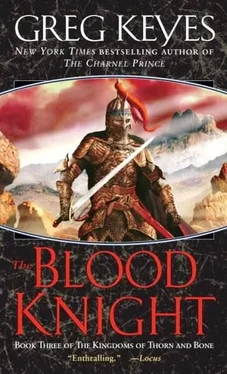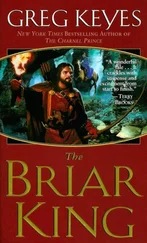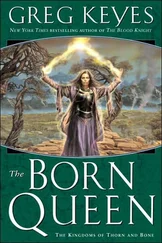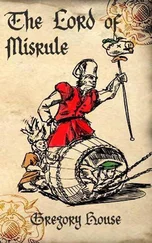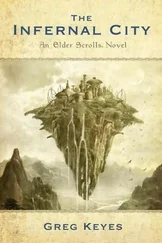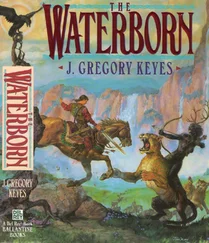She paused for a long moment, watching the distant signs of civilization, her feelings clouding a bit. A town meant people, and people meant food, shelter, warmth, companionship. It could also mean danger; the man who had attacked her—he must have attacked her—had come from somewhere. This was the first place she had seen that might explain him.
And where were Austra and the rest? Behind her, in front of her—or dead?
She took a deep breath, trying to release the tension in her shoulders.
She had been talking to Cazio, and everything had been fine. Then she had been alone with a dying man. The most logical assumption was that somehow he had abducted her, but why couldn’t she remember how it had happened?
Even trying to think about it brought a sudden panic that threatened to cloud all other thoughts from her mind.
She pushed that away and concentrated on the present. If her friends were alive, they were searching for her. If they were not, then she was alone.
Could she survive a night on the plain by herself? Maybe, maybe not. It depended on how cold it got. Prespine’s saddlebags contained a bit of bread and dried meat but nothing more. She had watched Cazio and z’Acatto start fires, but she hadn’t seen anything that resembled a tinder-box in the dead man’s possessions.
Reluctantly, she made her decision and prodded the mare toward the town. She needed to know where she was, at the very least. Had she made it to Loiyes? If so, the village ahead ought to be under the governance of her aunt. If she wasn’t in Loiyes, she needed to get there. She was more certain of that now than ever, for she had seen it in the face of the Briar King.
She realized that she knew something else.
Stephen Darige at least was alive. She knew this because the Briar King knew it. And there was something Stephen was supposed to do.
Not much farther along she came across a rutted clay road wide enough for wains; cut down into the landscape as it was, it had hidden itself from her earlier view. From where she met it the road wound off through cultivated fields. She noticed bits of green peeking through the snow, leading Anne to wonder what sorts of crops the farmers grew in winter or whether they were just weeds.
The haystacks she had seen as tiny at a distance were here prodigiously tall. Gaunt scarecrows in tattered rags stared empty-eyed from heads of gourd or shriveled black pumpkin.
The woodsmoke and its comforting aroma draped across the cold earth, and before long she came to a house, albeit a small one, with white clay walls and a steeply pitched thatch roof. A shed attached to the side seemed to serve as the barn; a cow watched her from beneath its eaves with dull curiosity. She could just make out a man in dirty tunic and leggings, pulling hay down from a loft with a wooden-tined pitchfork.
“Pardon me,” she called tentatively. “Can you tell me what that town ahead is named?”
The man glanced back at her, his tired eyes suddenly rounding a bit.
“Ah, edeu,” he said. “She ez anaméd Sevoyne , milady.”
Anne was taken aback by his accent, which was a bit difficult to decipher.
“Sevoyne?” she said. “That’s in Loiyes?”
“Edeu, milady. Loiyes ez here. Whereother should she beeth, to beg theen perdon?”
Anne let the question go as rhetorical. “And can you tell me where Glenchest is from here?” she pursued.
“Glenchest?” His brow furrowed. “She most to four leagues, creed I, ’long the road most to way. You are working for the duchess there, lady?”
“That’s where I’m going,” Anne said. “I’m just a little lost.”
“Never-I’ve been thet faer along,” the fellow said. “But they tell ez net s’hard to find to er.”
“Thanks, then,” Anne said. “Thanks for that.”
“Velhoman, and good road ahead, lady,” the man said.
As Anne rode on, she heard a woman’s voice behind her. The man answered, and this time the language was one she did not know, though it carried the same peculiar cadence as his very odd king’s tongue.
So this was Loiyes, in the heartland of Crotheny. How was it, then, that the peasants here didn’t speak the king’s tongue first?
And how was it that she hadn’t known as much? She had been to Loiyes before, to Glenchest. The people in the town in Glenchest spoke perfectly good king’s tongue. According to the man, this was less than a day’s ride from there.
She had spent so much time traveling in foreign lands. The thought of a homecoming—of reaching a place where people spoke the language she had grown up with and everything was familiar—was something she had been longing for for months.
Now here she was, only to discover that the country of her birth was stranger than she had ever known.
It made her feel a little sick.
By the time Anne reached Sevoyne, the appearing stars were vanishing behind a new ceiling of cloud rolling in from the east, bringing for Anne a return of the claustrophobia she’d experienced in the forest. Her silent pursuer was near again, emboldened by the deep shadows.
She passed the town horz, the one spot where things were allowed to grow absolutely wild, albeit caged by an ancient stone wall. For the first time Anne recognized that contradiction, and she felt it sharply, another familiar stone in her world that had turned over to reveal the crawling things festering beneath.
The horz represented wild, untamed nature. The saints of the horz were Selfan of the Pines, Rieyene of the Birds, Fessa of the Flowers, Flenz of the Vines: the wild saints. How must the wild saints feel about being bound when once the whole world must have been theirs? She remembered the horz back in Tero Galle, where she had entered the other world. She’d had a sense of diseased anger there, of frustration become madness.
For a moment the stone walls seemed to become a hedge of black thorns, and the image of the antlered figure returned to her.
He was wild, and, like everything truly wild, he was terrifying. The thorns were trying to bind him, weren’t they? The way the walls of the horz bound wildness. But who sent the thorns?
And had she thought of that herself, or had he left it in her head? How had she made that connection?
On the east she couldn’t remember what had happened to her. On the west her mind found strange conclusions. Had she lost control of her thoughts entirely? Was she mad?
“ Detoi, meyez ,” someone said, interrupting her ponderings. “ Quey veretoi adeyre en se zevie ?”
Anne tensed and tried to focus through the dark. To her surprise, what had seemed to be a mere shadow suddenly clarified as a man of middle years wearing livery she recognized: the sunspray, spear, and leaping fish of the dukes of Loiyes.
“Do you speak the king’s tongue, sir?” she asked.
“I do,” the man replied. “And I apologize for my impertinence. I could not see in the dark that you are a lady.”
Anne understood the peasants reaction now. Her king’s tongue and the accent she spoke it with gave her away immediately as a noble of Eslen, or one of the nobles’ close servants, at least. Her clothes, however dirty, surely confirmed it. That could be good or bad.
No, not good or bad. She was alone, without protectors. It was most probably bad.
“Whom do I have the honor of addressing, sir?”
“Mechoil MeLemved,” he replied. “Captain of the guard of Sevoyne. Are you lost, lady?”
“I’m on my way to Glenchest.”
“Alone? And in these times?”
“I had companions. We were separated.”
“Well, come in from the cold, lady. The coirmthez —I’m sorry, the inn—will have a room for you. Perhaps your companions are already waiting for you.”
Читать дальше
